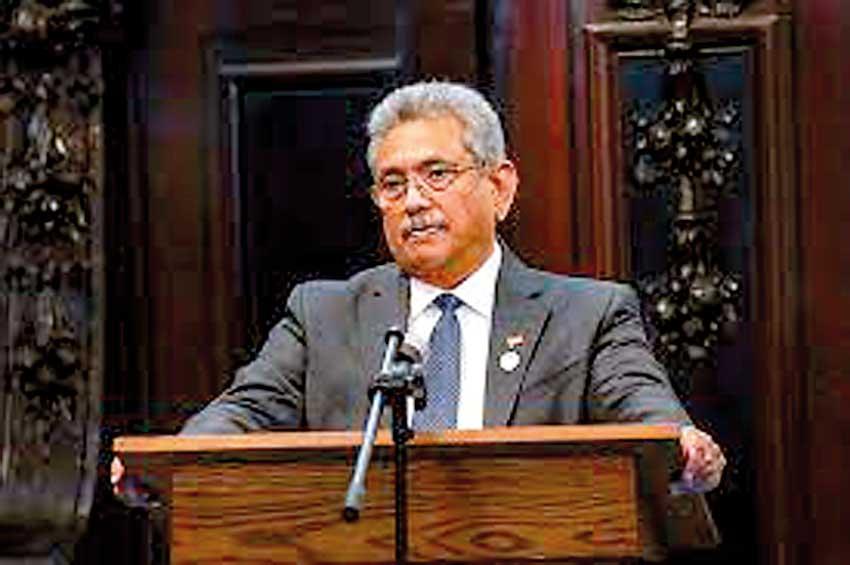02 Nov 2021 - {{hitsCtrl.values.hits}}

Gotabaya Rajapaksa
President Gotabaya Rajapaksa this week used the United Nations Climate Change Conference of Parties (COP) 26 event to highlight the overuse of chemical fertilisers in Sri Lanka, which has left the government to deal with diseases that continue to be “serious issues”, in the nation’s agriculture heartland.
Rajapaksa told the COP26 event in Glasgow, UK, this week, that the challenge is now to use modern scientific techniques and practices to enhance agricultural production without causing environmental degradation.
Pointing out the measures imposed on trimming the usage and dependency of chemical fertilisers, he stated that the action plan has been broadly appreciated but has also met with some criticism and resistance.
“…this resistance has come from farmers, who have grown accustomed to overusing fertiliser as an easy means of increasing yields. This is particularly unfortunate considering Sri Lanka’s rich agricultural heritage,” said Rajapaksa at COP26 that is held under the theme ‘Rediscovering Nitrogen: Solutions and Synergies for Climate Change, Health, Biodiversity and Circular Economy’.
However, he also indicated that the current government has embarked on a growth journey that has sustainability at the core, which is reflected in the country’s “ambitious” updated Nationally Determined Contributions to the United Nations Framework Convention on Climate Change (UNFCCC) Mechanism.
He affirmed Sri Lanka’s progressive agenda on the environment is being implemented despite the resource constraints it faces as a developing nation but noted that sustaining such an agenda alongside development programmes is challenging for all developing nations, especially following the COVID-19 pandemic.
To ease the challenges in the journey ahead, Rajapaksa called on developed countries to extend their fullest support to nations such as Sri Lanka, through development assistance, technology transfers, skills development, investment and financing support. Similarly, businesses were also urged to step up efforts by investing in sustainability efforts.
“If we all do this in a spirit of togetherness and goodwill, I am certain we will succeed in effecting positive change for our people and our planet,” Rajapaksa told the international forum.
COP26 kicked off on October 21 and will go on till November 12, 2021, bringing together world leaders to tackle climate change. While COP21 in Paris, which took place for the first time ever in 2015, got world leaders to commit to come together to limit global warming to well below two degrees and aim for 1.5 degrees, the commitment did not come close to limiting global warming to 1.5 degrees.
The UN has cautioned that the window for achieving this is closing and the decade out to 2030 will be crucial.
COP26 aims to secure global net zero by midcentury and keep 1.5 degrees within reach, adapt to protect communities and natural habitats, mobilise finance and work together to deliver.
17 Nov 2024 2 hours ago
17 Nov 2024 2 hours ago
17 Nov 2024 2 hours ago
17 Nov 2024 4 hours ago
17 Nov 2024 4 hours ago